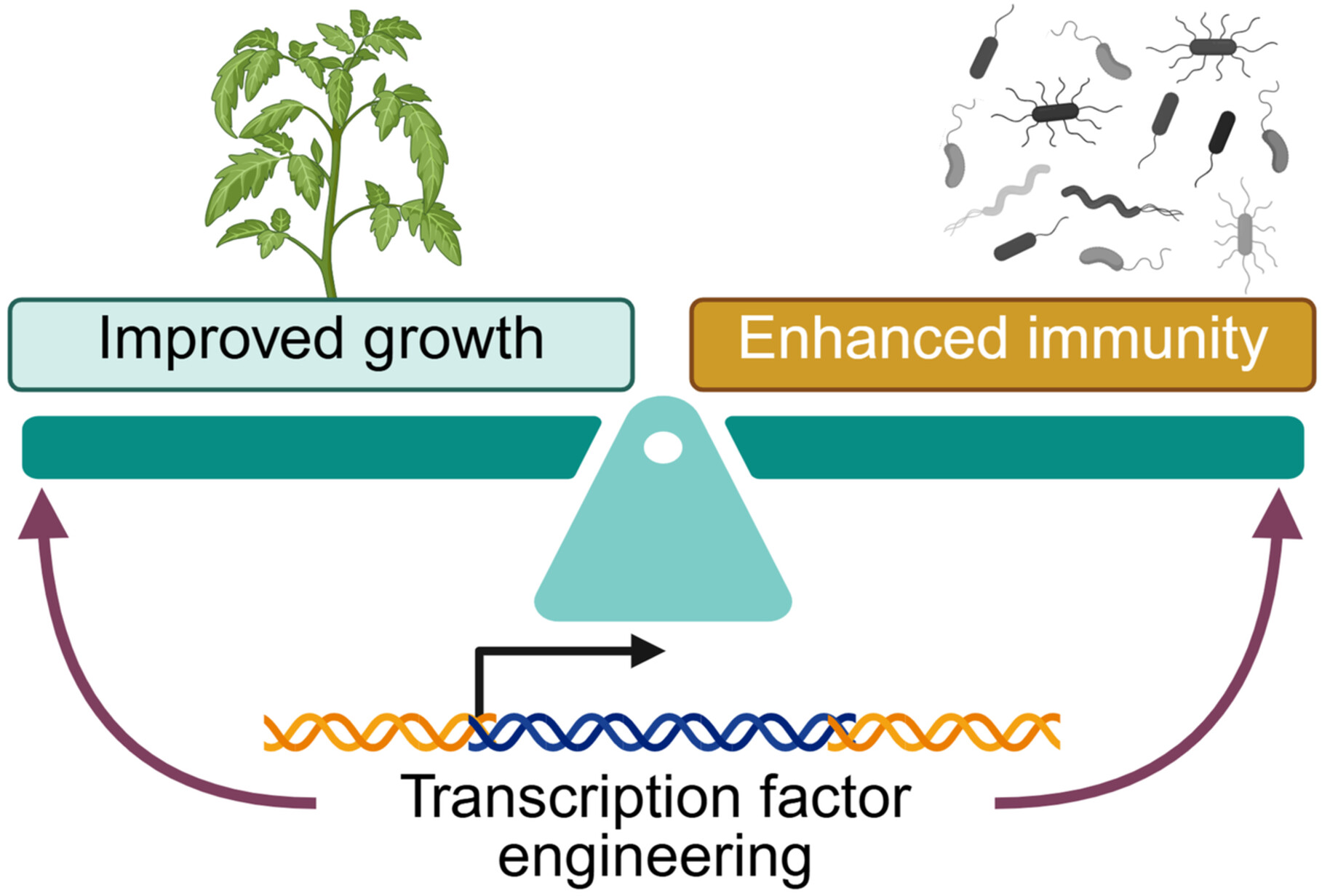Recent advances in improving yield and immunity through transcription factor engineering
- 1. Plant Molecular Biology and Biotechnology Research Center, Gyeongsang National University, Jinju 52828, Korea
2. Division of Applied Life Science (BK21 Four Program), Research Institute of Molecular Alchemy, Gyeongsang National University, Jinju 52828, Korea
3. Division of Plant Sciences, Christopher S. Bond Life Sciences Center and Interdisciplinary Plant Group, University of Missouri, Columbia, MO 65211, USA
†These authors contributed equally to this work and share first authorship.
*Correspondence: Sang Hee Kim (sangheekim@gnu.ac.kr)
Received date: 2025-03-18
Accepted date: 2025-04-22
Online published: 2025-05-21
Supported by
This research was supported by Basic Science Research Program and LAMP Program through the National Research Foundation of Korea (NRF) funded by the Ministry of Education (Nos. RS‐2021‐NR065275, RS‐2023‐00301974), the National Research Foundation of Korea (NRF) grant funded by the Korea government (MSIT) (Nos. RS‐2022‐NR070837, RS‐2025‐00559795), and grants from the New Breeding Technologies Development Program (RS‐2024‐00322125), Rural Development Administration, Republic of Korea.
Abstract

Cite this article
Arya Bagus Boedi Iswanto, Hobin Kang, Seonyeong Park, Geon Hui Son, Sharon M. Pike, Sang Hee Kim . Recent advances in improving yield and immunity through transcription factor engineering[J]. Journal of Integrative Plant Biology, 0 : 1 . DOI: 10.1111/jipb.13932